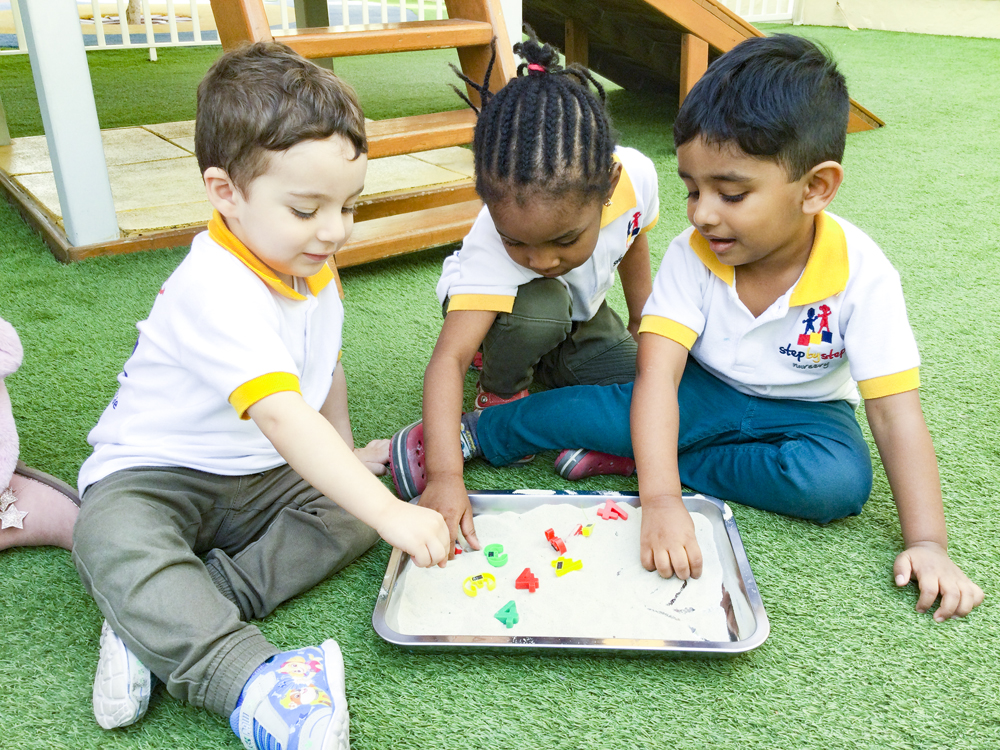
Starting school is a big step in your child’s life. As you begin this new chapter, both you and your child may feel a little anxious.
Here are our 10 top tips you may find useful in ensuring your child’s transition is as smooth as possible.
Read with your child
Reading will not only help you bond with your child, it will help you start discussions. Read the stories, ask them what they thought and start conversations about what you have read. Get them into the habit of discussing things with you. What can be quite useful is reading books about school to help your child open up about how they feel. Use this time to help them share their feelings about their new adventure and find out if they feel anxious about starting a new school or perhaps, they are looking forward to it!
Practice listening skills and turn taking
Have family discussions and point out to your child the importance of taking turns when talking and to be mindful of not interrupting others when they talk and share their news. You can try having your own circle time at home with their dolls and teddy bears or other siblings. You can even discuss your time at school and share some funny and positive experiences and memories from when you were in school. Just remember to keep the conversation positive.
Teach your child to recognise their name
Your child may or may not be able to read or write simple words by the time they start school but it is important for them to be able to recognise their own name so they are able to identify their own lunchboxes, jackets, bottles and other labelled items at school. Encourage your child to identify their name through fun games and activities. Explore what letters are in their name and what they look like and stick their name up around the house in areas that they will see and notice it.
Take your child along when you visit the school
If possible, visit the school with your child before they start. It would be good for your child to know what to expect on their first day. Try to visit when the school has an Open Day and try schedule a meeting with their new teacher. If you can’t visit the facility together, check their website for photos and talk to your child about the things at school that they might like – point out the fun areas that you think they will enjoy the most.
Shop for school items with your child
Enjoy a day out together with your child and let them choose their uniform, school bag, water bottle and lunch bag. Give them a sense of ownership and responsibility in their choices, encouraging them to feel positive about the new school experience. Make this special day an adventure and enjoy this precious time together.
Encourage selfcare and independence
Encourage your child to dress themselves, feed themselves, tie their own shoelaces and go to the toilet without any help. Ensure your child is potty trained and knows the importance of washing their hands properly afterwards. If your child manages to do all of these tasks independently, try giving them more responsibility and light chores, such as taking their plate to the kitchen after eating and tidying up the toys in their room.
Arrange opportunities where your child is able to socialise with children their own age
The transition to school is usually easier for children who are used to being around other children their own age. Enrol them into nursery school or arrange regular playdates, so that they can learn important social skills. Encourage them to smile and introduce themselves when greeting others. Also, encourage them to approach other children in play areas and parks helping them to make friends and to practise these social interactions.
Build their confidence and self-awareness
Encourage your child to feel comfortable to discuss and share things that they worry about. Let them know they can always approach their teacher when they have a problem and that they can always come home and share concerns with you.
Be social yourself
Children tend to mimic and copy behaviours from people they admire, so set a good example! When your children see you being social, they will most likely be social too. Go to school events, meet other mothers, arrange playdates, and enjoy being in their company. You can also try volunteering at the school or joining the school’s parent committee.
Put your own expectations aside
You might be extremely anxious about your child going to primary school for the first time but it is important that you do not pass this anxiety onto them – remember, your child can easily pick up on your emotions. Use positive encouragement and enthusiasm when talking about going to school so they look forward to going.



